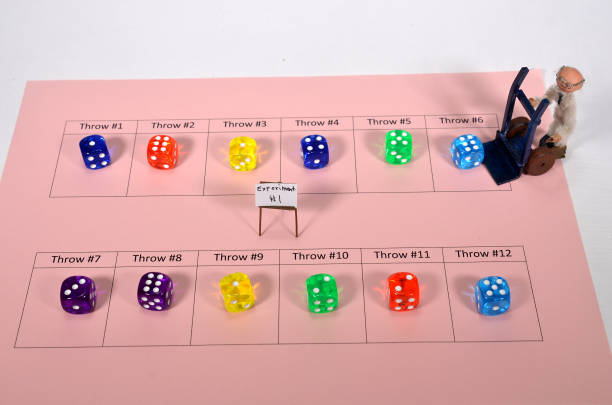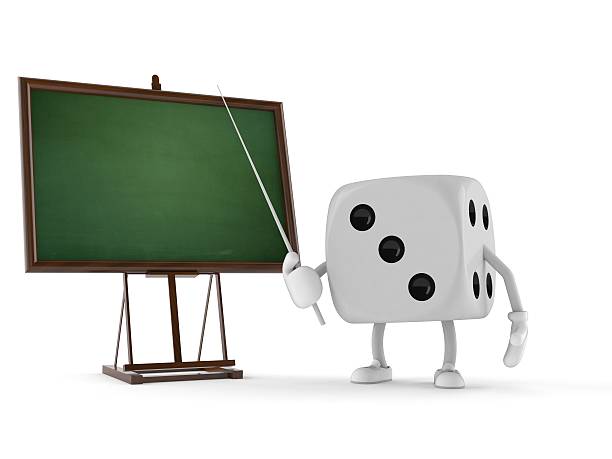Understanding High Roller Bonuses – A Smart Guide for Swiss Players

High roller bonuses are designed for players who place larger bets, often starting from deposits of several hundred or several thousand francs. Swiss casinos use these offers to reward loyalty and higher risk, while giving experienced players access to better conditions than standard welcome deals.
For players willing to play at higher limits, understanding Bonus Offers for High Rollers (Bonusangebote für High Roller) can make a real difference. These promotions are more flexible, more personal, and often better aligned with how serious players actually gamble. The key is knowing how they work before committing significant funds.
What Is a High Roller Bonus?
A high roller bonus is a special promotion aimed at players who deposit and wager large amounts. Unlike standard bonuses, which target casual users, high roller offers focus on value rather than flashy percentages. They often come with higher maximum bonus limits, tailored cashback, or personal rewards negotiated with a VIP manager.
Standard bonuses might cap rewards at CHF 200 or CHF 300. High roller bonuses can reach several thousand francs. The structure is also different. Instead of aggressive wagering, casinos may offer lower playthrough requirements or direct cashback on losses.
Common Types of High Roller Bonuses
Swiss players usually encounter two main formats. Deposit bonuses increase your bankroll by matching part of your deposit. Cashback bonuses return a percentage of your net losses over a defined period, often weekly.
Deposit bonuses suit players with a clear strategy and strong bankroll control. Cashback bonuses appeal to those who play often and want protection against variance. Some casinos combine both formats, offering a smaller match bonus plus ongoing cashback.
Key Terms You Must Understand
- Wagering requirements: The number of times you must bet the bonus amount before withdrawal.
- Minimum deposit: The entry level to qualify, usually CHF 500 or more.
- Validity period: The time frame to use the bonus, often shorter than standard offers.
- Game contribution: The percentage different games count toward wagering.
Ignoring these terms is the fastest way to lose value. High roller bonuses can look generous, but conditions always matter.
Why High Stakes Change the Rules
Playing with higher stakes magnifies both wins and losses. Casinos understand this and often provide more transparent terms for VIP players. Lower wagering requirements are common because high rollers generate volume quickly.
This is where a second look at Bonus Offers for High Rollers (Bonusangebote für High Roller) becomes useful. Many Swiss-facing platforms adapt these bonuses to local regulations, offering clearer limits and responsible gambling tools. This balance helps players stay in control while enjoying premium rewards.
Responsible Gambling at Higher Limits
Smart high roller play starts with discipline. Set loss limits before activating any bonus. Decide how much you are prepared to risk, and stick to that number regardless of short-term results.
Using cashback bonuses as a safety net can reduce emotional decisions. Avoid chasing wagering requirements with bets that exceed your comfort level. High roller status should give you flexibility, not pressure.
Examples from the Swiss Market
Several licensed and Swiss-focused casinos offer VIP programs with tiered rewards. These often include personal account managers, faster withdrawals, and custom bonuses based on play history. The best offers are rarely advertised openly and become available after consistent play.
Swiss players benefit from strong consumer protection and clear bonus rules. Reading the full terms and confirming game eligibility is still essential, especially when large sums are involved.
READ ALSO: How to Recover After a Losing Streak (Without Going Broke)
Conclusion: Play Smart, Play Informed
High roller bonuses can add real value when used with care and planning. They reward commitment, but they also demand understanding. Players who take time to study Bonus Offers for High Rollers gain better control over risk, rewards, and long-term enjoyment. Knowledge remains the strongest advantage at any stake level.







 Closing Line Value has become one of the most talked-about concepts in sports betting. That’s a good thing. It’s one of the few tools that actually helps bettors understand whether they have an edge, regardless of the game stakes they’re playing at. But as CLV has become more popular, it’s also become misunderstood. Ideas get simplified, stretched, or repeated without context. Over time, those misunderstandings turn into myths. And those myths cause bettors to misuse CLV or dismiss it entirely. Let’s break down the biggest ones.
Closing Line Value has become one of the most talked-about concepts in sports betting. That’s a good thing. It’s one of the few tools that actually helps bettors understand whether they have an edge, regardless of the game stakes they’re playing at. But as CLV has become more popular, it’s also become misunderstood. Ideas get simplified, stretched, or repeated without context. Over time, those misunderstandings turn into myths. And those myths cause bettors to misuse CLV or dismiss it entirely. Let’s break down the biggest ones. Line shopping sounds simple. You compare odds across sportsbooks and take the best number. That’s the theory. In practice, many beginners do it halfway or misunderstand what actually matters. They think they’re being careful, but small mistakes quietly drain value from their bets, even when using a fast payout casino, where speed can create a false sense of efficiency. Most of these errors don’t feel like mistakes. They think reasonably in the moment. Over time, though, they add up. Below are three standard line shopping mistakes new bettors make without realizing it, and why fixing them matters more than most people think.
Line shopping sounds simple. You compare odds across sportsbooks and take the best number. That’s the theory. In practice, many beginners do it halfway or misunderstand what actually matters. They think they’re being careful, but small mistakes quietly drain value from their bets, even when using a fast payout casino, where speed can create a false sense of efficiency. Most of these errors don’t feel like mistakes. They think reasonably in the moment. Over time, though, they add up. Below are three standard line shopping mistakes new bettors make without realizing it, and why fixing them matters more than most people think. Every bettor hits a losing streak, it happens to both sharp and casual bettors. What matters is not the streak itself, but how you respond to it. Most bankrolls do not disappear because of one bad run; they disappear because of poor decisions made during that run. Recovery is not about chasing losses or hunting for a miracle bet, but about slowing down, checking your assumptions, and resetting your mindset in line with safe online gambling principles before more damage is done. Done right, a losing streak can be a warning sign rather than a financial disaster.
Every bettor hits a losing streak, it happens to both sharp and casual bettors. What matters is not the streak itself, but how you respond to it. Most bankrolls do not disappear because of one bad run; they disappear because of poor decisions made during that run. Recovery is not about chasing losses or hunting for a miracle bet, but about slowing down, checking your assumptions, and resetting your mindset in line with safe online gambling principles before more damage is done. Done right, a losing streak can be a warning sign rather than a financial disaster.
 Responsible gaming also forms one of the biggest dimensions within the Italian betting industry. Some of the features deployed by platforms such as 1Bet include self-exclusion devices, deposit restrictions, and alerts. All these actions will guarantee that betting is not only amusing but is also sustainable.
Responsible gaming also forms one of the biggest dimensions within the Italian betting industry. Some of the features deployed by platforms such as 1Bet include self-exclusion devices, deposit restrictions, and alerts. All these actions will guarantee that betting is not only amusing but is also sustainable.
 How Crypto Casinos Work
How Crypto Casinos Work Making Sense of the Win
Making Sense of the Win














 Roulette has been one of the most iconic casino games for over three centuries. Its spinning wheel and simple layout have made it a favorite among both seasoned gamblers and curious newcomers. Now, with the rise of online gaming, the classic thrill of roulette is more accessible than ever. Players can enjoy the game from their phones or laptops without needing to step inside a casino. This accessibility makes it even more important to learn the basics before placing your first bet.
Roulette has been one of the most iconic casino games for over three centuries. Its spinning wheel and simple layout have made it a favorite among both seasoned gamblers and curious newcomers. Now, with the rise of online gaming, the classic thrill of roulette is more accessible than ever. Players can enjoy the game from their phones or laptops without needing to step inside a casino. This accessibility makes it even more important to learn the basics before placing your first bet. When people first hear about online slots, one of the most common questions is: Are they really fair? With no physical reels spinning in front of you, it’s natural to wonder what’s happening behind the screen. The answer comes down to technology and oversight. Their work plays a major role in building trust between players and casinos, especially for those who enjoy qqclubs slot game online Malaysia.
When people first hear about online slots, one of the most common questions is: Are they really fair? With no physical reels spinning in front of you, it’s natural to wonder what’s happening behind the screen. The answer comes down to technology and oversight. Their work plays a major role in building trust between players and casinos, especially for those who enjoy qqclubs slot game online Malaysia.

 Online slot games have rapidly gained popularity in recent years. PG Slot is one of the top platforms that offers exciting and innovative gaming experiences. If you’re new to the world of online gambling, learning the ins and outs of PG Slot can greatly enhance your gaming strategy. From understanding the game mechanics to mastering bankroll management, this guide will help you navigate through the essentials and improve your chances of success.
Online slot games have rapidly gained popularity in recent years. PG Slot is one of the top platforms that offers exciting and innovative gaming experiences. If you’re new to the world of online gambling, learning the ins and outs of PG Slot can greatly enhance your gaming strategy. From understanding the game mechanics to mastering bankroll management, this guide will help you navigate through the essentials and improve your chances of success.





